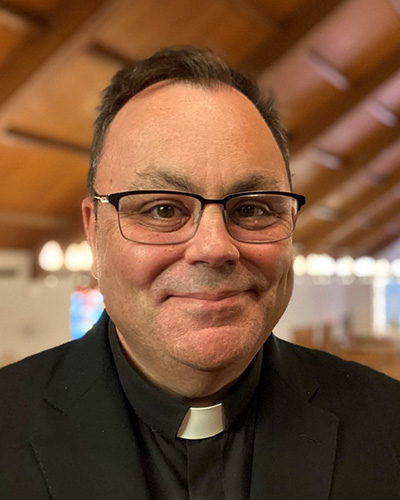It was not made known to people in other generations as it has now been revealed to his holy apostles and prophets by the Spirit: that the Gentiles are co-heirs, members of the same body, and co-partners in the promise in Christ Jesus through the gospel.
The Christmas season is one steeped in tradition. Even amidst the exchanging of the newest technological gifts, we find ourselves living out the adage, “The more things change, the more they remain the same.” This is particularly true as we observe these days through each new generation of children. Another example of this truth occurring as families come together, in a more negative light, is that young people tend to believe in the superiority of their generation. Society’s youngest generation tends to have a bias against the generations that have preceded it. As the conversations at family gatherings often reveal, the next generation feels special and more enlightened than those prior to it. In some cases, this is true. With their own unique insights, the young shed new perspectives on age-old challenges. As we grow older, we take offense at any perceived rejection of the wisdom we have obtained from our life experiences. The gathering of multi generations, therefore, is an opportunity to see with new eyes, while at the same time allowing us to be guided by the blessing of developed insight.
The above quotation from today’s second reading from St. Paul to the Ephesians may seem like a generational bias. What was not seen before has now been revealed to Paul’s generation. What is important to understand, however, is that a new understanding has been revealed, not discovered. What has been revealed by the Spirit is that God’s plan is greater than had been previously imagined. The saving graces that come through Jesus Christ are for the Gentiles as well as the Jews. St. Paul preaches about this inclusive vision of the Body of Christ because it has been revealed to him through his own conversion and the conversion of the Apostles, who did not accept this vision of inclusivity initially. What each generation comes to know and understand is not based in its superiority but the ongoing presence of God, revealing his plan and wisdom to each generation. Epiphanies come from God, not us.
St. Paul’s “epiphany” is a fulfillment of the Epiphany of the Magi, who are often referred to as the Wise Men. Wisdom of the past is now recognized by the next generation! Who would have believed such a thing was possible? As we celebrate the Feast of the Epiphany today, we are challenged to allow the wisdom of each generation to enter a sacred dialogue that reveals the presence of Christ. How has a member of the grandparent generation come to recognize the presence of Christ? What biases kept that generation from seeing God in all people? How does a teenager find God amid the temptations and challenges of today? What can a young child reveal about the unconditional love of God? How does a person who is working two jobs to make ends meet find time to pray and seek God? In God’s wisdom, the Messiah came to be through his birth into a family. If we ask some of these questions in the midst of our families, we might be amazed that Christ is indeed revealed to all generations. May we appreciate and value the epiphanies of Christ’s presence, yesterday, today and forever.
EPIPHANY HOME BLESSING – The blessing of the doors with a chalk inscription above each door is a New Year custom. The inscription “C + M + B” signifies Caspar, Melchior, and Balthazar, the traditional names of the Wisemen or Christus Mansionem Benedicat which is Latin for “Christ bless this house.” The numerals on either side of the initials indicate the year. You can follow this tradition in your home with chalk or use the image below.

Peace,

